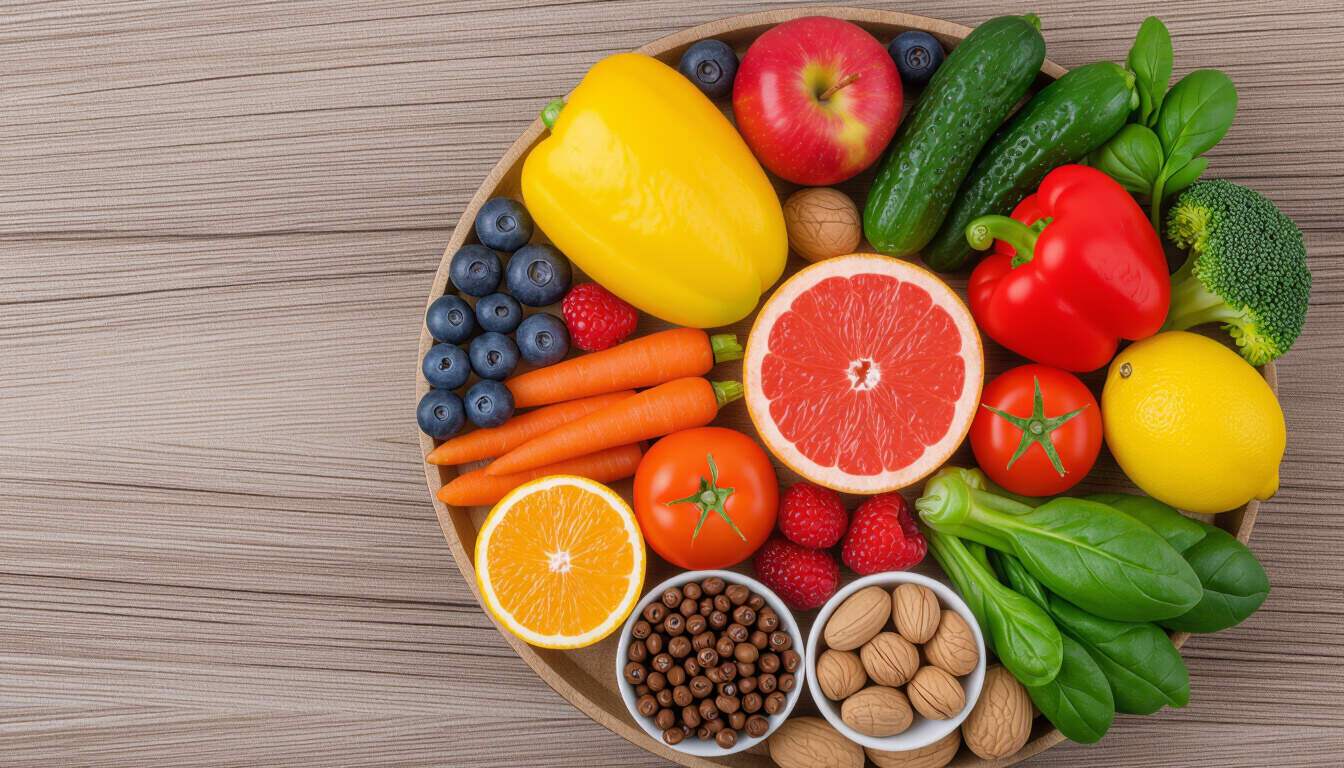Diet Plans to Enhance Brain Function and Ease Mental Overload
 by Verner Mayer
by Verner Mayer
Explore how specific diet plans can improve brain function and help reduce everyday mental overload. This article offers practical tips on incorporating nutrient-rich foods into your routine, making it easier for students and professionals to maintain focus and productivity.

In daily life, managing mental demands can feel overwhelming, especially for students and professionals juggling multiple tasks. One effective way to address this is through strategic diet plans that support brain function. By focusing on foods that nourish the mind, individuals can create a foundation for better cognitive performance and reduced mental fatigue.
Why Diet Matters for Cognitive Health
Good nutrition plays a key role in how our brains operate. Certain nutrients help maintain neurotransmitter balance and protect against oxidative stress, which can contribute to mental overload. For instance, omega-3 fatty acids found in fish aid in building brain cell membranes, promoting smoother information processing. This approach allows people to handle daily challenges with greater ease.
A balanced diet provides essential vitamins and minerals that influence memory and concentration. Foods rich in antioxidants, such as berries, combat inflammation in the brain, helping to sustain energy levels throughout the day. By integrating these elements, individuals might notice improvements in their ability to focus on tasks without feeling drained.
Key Components of a Brain-Supporting Diet
To build a diet plan that targets cognitive load reduction, start with whole foods that offer sustained energy. Include plenty of vegetables, fruits, lean proteins, and healthy fats in your meals. This combination helps stabilize blood sugar levels, preventing the spikes and crashes that can lead to mental fog.
Consider incorporating whole grains like oats and quinoa, which provide steady glucose release to the brain. Proteins such as eggs and poultry supply amino acids necessary for producing neurotransmitters like dopamine, which supports motivation and attention. Adding nuts and seeds can bring in vitamin E, known to preserve cognitive abilities over time.
Hydration is another important factor. Drinking enough water ensures that the brain functions optimally, as even mild dehydration can impair cognitive tasks. Aim for at least eight glasses a day, paired with meals that include hydrating foods like cucumbers and watermelon.
Practical Tips for Implementing a Brain-Friendly Diet
Getting started with a new diet plan doesn't have to be complicated. Begin by planning meals around seasonal produce to keep things fresh and affordable. For example, a simple breakfast could include a smoothie with spinach, banana, and a handful of walnuts, providing fiber, vitamins, and healthy fats all at once.
Snacking smartly can make a big difference. Instead of reaching for processed items, opt for yogurt with berries or apple slices with cheese. These choices deliver quick nutrients that help maintain steady brain function during work or study sessions.
Meal prepping on weekends can save time during busy weekdays. Prepare salads with mixed greens, tomatoes, and grilled chicken, then store them for easy access. This method reduces the mental effort needed for daily decisions about food, freeing up space for other priorities.
Tracking your intake might reveal patterns in how certain foods affect your energy. Keep a simple journal for a week, noting meals and subsequent focus levels. Over time, this can guide adjustments to your plan, ensuring it aligns with your lifestyle.
Combining Diet with Other Habits
While diet is crucial, pairing it with rest and physical activity amplifies its benefits. Regular exercise, such as walking or yoga, increases blood flow to the brain, enhancing the effects of a nutrient-rich diet. Together, they form a comprehensive strategy for managing mental demands.
Sleep quality also ties into dietary choices. Foods high in magnesium, like leafy greens and almonds, can promote better rest, allowing the brain to recover from daily stresses. Aim for seven to nine hours of sleep each night to maximize these advantages.
Mindful eating practices can further support cognitive health. Take time to eat without distractions, which helps with digestion and overall satisfaction. This habit encourages a more intentional approach to nutrition, reducing the likelihood of overeating or poor choices.
Recipes and Meal Ideas for Everyday Use
Here are a few straightforward recipes to incorporate into your routine:
-
Salmon Salad: Grill a salmon fillet and serve it over a bed of arugula with olive oil dressing. This meal is rich in omega-3s and provides a satisfying option for lunch.
-
Vegetable Stir-Fry: Sauté broccoli, carrots, and bell peppers with tofu in a light sauce. It's a quick dinner that delivers a variety of vitamins to support brain health.
-
Overnight Oats: Mix oats with chia seeds and almond milk, then top with fresh fruit in the morning. This breakfast option is easy to prepare and offers sustained energy.
Experimenting with these ideas can make healthy eating enjoyable and sustainable. Remember, the goal is to create habits that fit your preferences while promoting long-term well-being.
Encouraging Long-Term Changes
Adopting a diet plan for better brain function is about building sustainable habits rather than short-term fixes. Start small, perhaps by swapping one unhealthy snack for a healthier alternative each day. Over time, these changes can lead to noticeable improvements in mental clarity and resilience.
For students, this might mean performing better in exams with improved focus. Professionals could find it easier to handle workloads without burnout. Anyone interested in cognitive science will appreciate how simple dietary shifts can enhance productivity and overall life quality.
By prioritizing nutrition, you take a positive step toward reducing mental overload and fostering a healthier mind. With consistent effort, these strategies can become second nature, helping you thrive in everyday activities.
